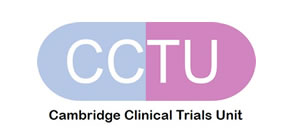Cambridge study to trial widely used drug to protect healthcare staff from COVID-19.
The PROLIFIC study (ChemoPROphyLaxIs For covId-19 infeCtious disease) aims to determine  whether hydroxychloroquine (HCQ), a widely used anti-malarial drug, is effective at preventing or reducing COVID-19 infection in frontline healthcare workers.
whether hydroxychloroquine (HCQ), a widely used anti-malarial drug, is effective at preventing or reducing COVID-19 infection in frontline healthcare workers.
Until a safe and effective vaccine is available to prevent SARS-CoV-2 infection and the development of COVID-19 symptoms, NHS and other frontline healthcare staff, including paramedics, will continue to remain vulnerable even with the best personal protective equipment (PPE) available. Chemoprophylaxis (drugs taken to prevent infection) may be an effective strategy for reducing infection in NHS staff until a successful vaccine can be produced.
Although HCQ and the related drug, chloroquine, have been suggested as potentially effective treatments for COVID-19 from early on in the pandemic, there have not yet been any well-designed, sufficiently large studies that can provide the evidence required for their use as preventative therapies. PROLIFIC is a randomised, double-blinded and placebo-controlled study that will determine whether daily or weekly doses of HCQ are effective at reducing COVID-19 infection among front-line health care workers.
HCQ, a medication already widely and safely used to prevent malaria in high risk countries has shown promise at preventing SARS-CoV-2 infection in vitro (in cells grown in a lab). Compared with chloroquine, HCQ causes fewer side effects, and has shown greater potential at preventing coronavirus infection in early studies, even when used at lower concentrations. How HCQ works to prevent infection is not fully understood, but researchers believe that it may block the virus from entering cells by influencing the pH in the part of the cell that would normally fuse with the virus to allow it to get inside the cell and replicate.
Dr Joseph Cheriyan, Consultant in Clinical Pharmacology at Cambridge University Hospitals, and Chief Investigator of the study said: “It is important that we quickly determine via a randomised controlled trial if HCQ provides a means to provide additional protection to frontline workers, this in turn will also protect the public. The PROLIFIC trial should provide answers shortly to address these issues.”
If this trial is successful, it will help to protect and maintain our skilled healthcare workforce, as well as reducing the burden of infection on an already strained healthcare system.
Professor Ian Wilkinson (Professor of Therapeutics and Director of the Cambridge Clinical Trials Unit) said: “Front-line heath care workers are like the spitfire pilots of the Battle of Britain. I am delighted that Cambridge is leading the way in testing hydroxychloroquine to protect health care workers from a disease that has already claimed the lives of too many people. PROLIFIC will be based exclusively in the UK and thus provide an answer directly relevant to the NHS and UK social care setting.”
PROLIFIC will be recruiting healthcare participants from hospitals and care homes across the country.
Find out more about the PROLIFIC trial and read the patient information sheet, or for further information visit the CCTU website.



